Uncategorized
-
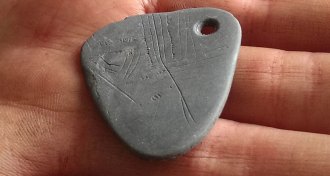 Archaeology
Archaeology11,000-year-old pendant with etched design found in England
Stone artifact with design etched on it comes from a transitional time in England 11,000 years ago.
By Bruce Bower -
 Health & Medicine
Health & MedicineExplaining Henry VIII’s erratic behavior
Researchers say Henry VIII suffered several traumatic brain injuries that may explain his explosive outbursts and memory problems.
-
 Planetary Science
Planetary ScienceCharon’s surface cracked when ancient subsurface sea froze
A subsurface ocean on Charon, Pluto’s largest moon, might have once frozen and cracked the moon’s surface, creating some of the ridges and valleys seen today.
-
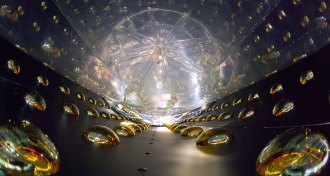 Particle Physics
Particle PhysicsReactor data hint at existence of fourth neutrino
A nuclear reactor experiment in China is providing new hints that a fourth type of neutrino, one more than the standard model of physics allows, may exist.
By Ron Cowen -
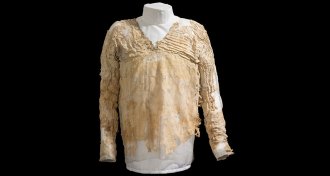 Archaeology
ArchaeologyTailored Egyptian dress is the oldest ever found
A pleated dress found in an ancient Egyptian cemetery called Tarkhan was cut, fitted and tailored between 5,400 and 5,100 years ago.
By Bruce Bower -
 Astronomy
AstronomyFast radio burst tracked to its galaxy of origin
After years of searching, astronomers finally track an elusive cosmic radio signal to its home: a galaxy about 6 billion light-years away.
-
 Earth
EarthReaders respond to blue tarantulas, multiparticles and white outs
Readers respond to the January 9, 2016 issue of Science News with thoughts on blue tarantulas, multiparticles, and avalanches.
-
 Cosmology
CosmologyCelebrating a new way to listen to the universe
Editor in Chief Eva Emerson reflects on the detection of gravitational waves as a historic moment for physics.
By Eva Emerson -
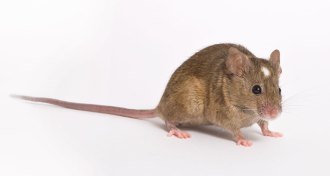 Genetics
Genetics‘Selfish’ DNA flouts rules of inheritance
R2d2 is selfish DNA that could skew scientists’ views of adaptation and evolution.
-
 Health & Medicine
Health & MedicineThere’s more than one way to quit smoking
Three therapies to quit smoking are all about equally effective in the long term, a new study finds.
By Meghan Rosen -
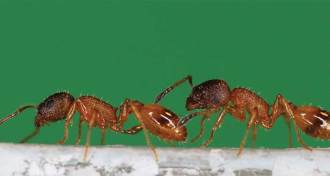 Animals
AnimalsRock ant decisions swayed by six-legged social media
When rock ants start influencing each other with one-on-one social contact, a colony’s collective decisions can change.
By Susan Milius -
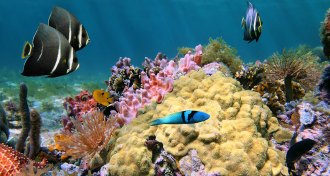 Oceans
OceansCorals need to take their vitamin C
Newly settled corals use vitamin C to help build their stony skeletons, researchers propose.